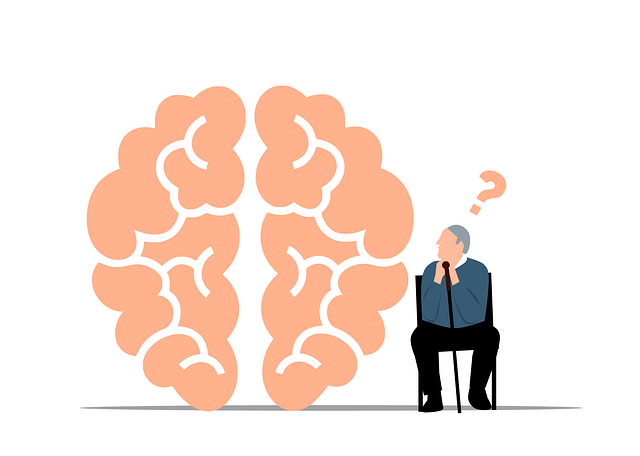Mental health advocacy initiatives, like Littleton Interpersonal Issues Therapy (LIIT), are key to fostering community support for mental well-being. Through awareness campaigns, support groups, and education, these programs break down stigma, encourage open dialogue about interpersonal issues, and ensure access to quality care. LIIT's holistic approach, combining individual therapy with group support, normalizes mental health conversations, enhances self-esteem, and tackles societal stigmas. Effective advocacy initiatives empower individuals to seek help, fostering a culture of empathy and self-care that extends beyond professional settings, ultimately transforming the mental health landscape for everyone.
Mental health advocacy initiatives play a pivotal role in fostering supportive communities. This article explores the impact of such initiatives, using Littleton Interpersonal Issues Therapy (LIIT) as a compelling case study. LIIT’s innovative approach demonstrates how targeted programs can empower individuals and address interpersonal challenges. We delve into effective strategies for mental health advocacy, highlighting their potential to revolutionize community care. By understanding these initiatives, we can navigate towards a more inclusive and supportive society.
- Understanding Mental Health Advocacy: The Role of Initiatives in Community Support
- Littleton Interpersonal Issues Therapy: A Case Study on Innovative Approaches
- Strategies for Effective Mental Health Advocacy: Empowering Individuals and Communities
Understanding Mental Health Advocacy: The Role of Initiatives in Community Support

Mental health advocacy initiatives play a pivotal role in fostering community support and promoting understanding of interpersonal issues therapy. These efforts are crucial for breaking down stigma associated with mental health, encouraging open conversations, and ensuring access to quality care. Through various programs, such as awareness campaigns, support groups, and educational workshops, advocates raise visibility on the importance of mental well-being and the effectiveness of evidence-based practices like Littleton Interpersonal Issues Therapy.
Effective advocacy initiatives incorporate communication strategies and compassion cultivation practices to build bridges between individuals struggling with mental health issues and their communities. By emphasizing self-care practices and fostering a culture of empathy, these initiatives empower individuals to seek help, offer support, and create a network of care that extends beyond professional settings. This holistic approach enhances the overall mental health landscape, ensuring a more compassionate and inclusive environment for all.
Littleton Interpersonal Issues Therapy: A Case Study on Innovative Approaches

The Littleton Interpersonal Issues Therapy (LIIT) program stands out as a beacon of hope and innovation in mental health advocacy. This therapeutic approach focuses on fostering self-awareness exercises among participants, enabling them to navigate interpersonal challenges with enhanced resilience. By integrating community outreach program implementation strategies, LIIT goes beyond traditional therapy, engaging the broader community to promote mental wellness. The initiative has been instrumental in improving self-esteem, a key aspect of overall well-being, among individuals from diverse backgrounds.
Through dynamic and inclusive practices, LIIT challenges societal stigmas surrounding mental health while offering practical solutions. By combining individual therapy sessions with group support activities, the program cultivates a sense of belonging and encourages open dialogue. This holistic approach has proven effective in addressing various interpersonal issues, ultimately contributing to the mental health advocacy landscape by showcasing a sustainable model for community-driven wellness interventions.
Strategies for Effective Mental Health Advocacy: Empowering Individuals and Communities

Mental health advocacy initiatives play a pivotal role in fostering well-being and breaking down societal barriers. Effective strategies involve a multi-faceted approach to empower both individuals and communities. One key tactic is encouraging open dialogue about interpersonal issues, as addressed by Littleton Interpersonal Issues Therapy, to normalize conversations around mental health.
Public Awareness Campaigns Development can significantly contribute to reducing stigma and promoting understanding. Educating the public on mood management techniques and available support services equips people with tools to recognize and address their own or others’ struggles. Moreover, these campaigns can foster a sense of community, encouraging individuals to seek help and supporting those who are already navigating mental health challenges, ultimately enhancing overall resilience.
Mental health advocacy initiatives, such as Littleton Interpersonal Issues Therapy, play a pivotal role in fostering community support and empowering individuals. By understanding the importance of these efforts, we can revolutionize mental healthcare access and outcomes. Through innovative approaches like those highlighted in this article, we have the potential to create a more inclusive and supportive society, where everyone has the chance to thrive. Effective advocacy strategies not only empower individuals but also strengthen communities, ultimately leading to a healthier, more resilient future for all.














